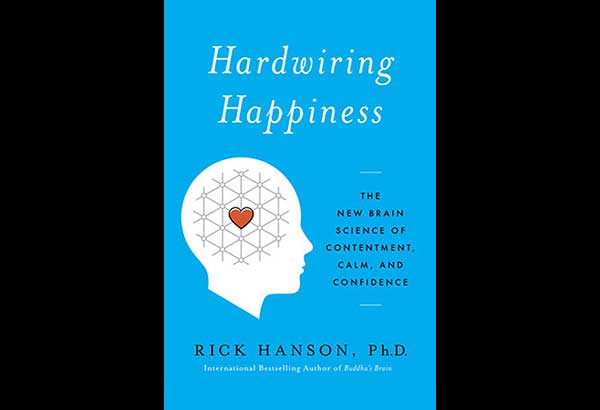what do you need to be happy?

What does it take to be happy? Each person in the world would have a different answer. It’s a subjective question that lingers in the recesses of our subconscious. It pops out in random moments and it hits us most when we come face to face with a tragic event or a distressing time when we feel a void in our lives.
Perhaps happiness is having a roof over your head or being in the presence of those that you love. Maybe it’s achieving your dream body or seeing your new business take flight. Whatever it may be, for centuries people have been working towards so many things and aspirations — all with the ultimate goal of finding happiness.
People work night and day trying to find this elusive state that money can’t buy. What these folks don’t understand is that happiness is a choice, and as long as they tie it to external conditions, they will never be truly satisfied.
Society has a way of embedding the idea that there is something out there that can provide the happiness that we seek — a thing, a vacation, a promotion, a person.
The harsh and sober truth is that everything outside of ourselves is well beyond our control, and putting our happiness in the hands of someone else or something that’s not inside of us is never as sustainable as society perceives it to be.
This explains why sometimes even the most beautiful, famous or successful people claim to be unhappy, while a young child with nothing can be in total bliss.
The truth is you don’t need anything to be happy. You just need to learn how to hardwire it into your brain. Happiness is a condition that you are already capable of unlocking this very moment.
The brain is designed to learn; to be changed by our experiences. Every time you use your brain — as you read, sense, feel or think — you build your brain.
For thousands of years, the human mind has been molded this way. Unfortunately, the human mind has been conditioned to hold on to and learn more from negative experiences than positive ones.
In the caveman era, under the constant threat of wild animals, forces of nature and other enemy tribes, the cost of not learning from a negative experience was death. It only took one attack from a tiger or a member of an opposing tribe to end a life.
The tendency then is to focus on the negative, imminent threat. It’s not like they had a choice — it was a necessity for survival.
Today, this same mental practice of focusing on the negative prevails and is detrimental. In spite of all the modern comforts that we have gained, the human brain has not adjusted one bit. We still choose to channel our focus on what is missing instead of appreciating the privileges that we are blessed with.
The culture of consumerism that we have fostered has led people to work and stress more. People are trapped in a ceaseless cycle of working and wanting.
Their endless tasks have left them in a sort of daze, acting as blinders and deflecting their attention away from the more important things in life — doing activities that give them a real sense of contentment like spending quality time with the people who matter.
On my long haul flight home from the US, I had the chance to read Rick Hanson’s book Hardwiring Happiness, an enlightening read about growing inner strengths through positive experiences.
Here he writes that over time, by fully taking in good experiences and allowing yourself to feel good in the unfolding moment, you are growing new neural circuits in your brain.
“Taking in the good helps you see the good in yourself, and in the world and other people,” Hanson writes.
Taking in good experiences without any qualms and all the endless worries that reside in the back of our heads requires conscious effort, and building it into your brain takes time. But it can be done with a few simple steps.
With every experience you encounter, no matter how small it may seem, set aside a few seconds to enjoy how good it feels — the warmth of a blanket, the feel of a cold shower after a long workout, the smell of dew in the early morning, the beauty of a starlit sky on a clear night, a home-cooked meal prepared by someone who cares, the assuring words of a father.
Be a good friend to yourself. When faced with difficulties, remember a time when you felt strong, when there was no other choice but to hang on and stay tough.
You enjoy the results of the hard work of so many people before you. No matter where you are, chances are that someone loves and supports you.
“Taking in the good is not about chasing after pleasure or chasing away pain. It’s about bringing the chase to an end,” he explains.
“As you weave an underlying sense of strength and well-being into yourself, your happiness becomes increasingly unconditional, less and less based on external conditions,” he concludes.
* * *
Post me a note at mylene@goldsgym.com.ph or mylenedayrit@gmail.com.



















